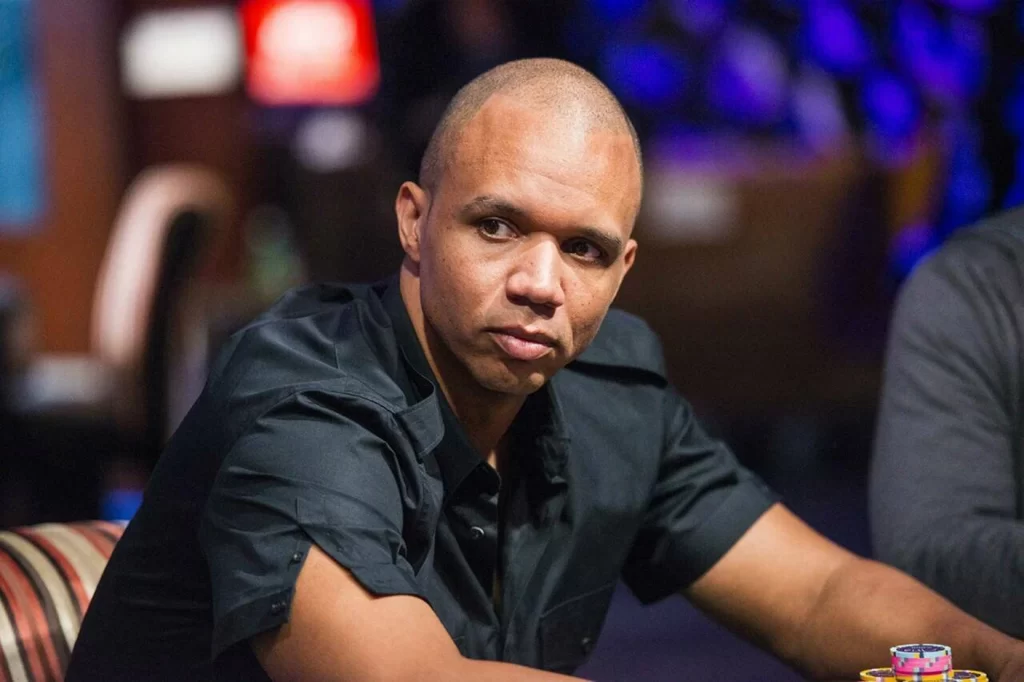Phil Ivey, a renowned professional poker player, found himself at the center of a controversy that sent shockwaves through the world of gambling. His use of a technique known as “edge sorting” during a high-stakes game of baccarat led to accusations of cheating, legal battles, and debates about the ethics of advantage play in the casino industry.
This article delves into the fascinating story of Phil Ivey, the concept of edge sorting, and the ethical dimensions of cheating in gambling.
Phil Ivey: A Poker Legend
Phil Ivey is widely regarded as one of the greatest poker players in history. Born in 1976 in Riverside, California, Ivey developed a passion for card games at a young age. His exceptional skills, combined with a calm and calculated demeanor, propelled him to the top of the poker world. Ivey’s impressive resume includes ten World Series of Poker (WSOP) bracelets and millions of dollars in tournament earnings.
However, it was his foray into the world of high-stakes baccarat that would thrust him into the spotlight for all the wrong reasons.
Edge Sorting: Phil Ivey’s Controversial Technique
Edge sorting is a technique employed by skilled gamblers to gain an advantage in certain casino card games, particularly baccarat. The method relies on identifying minute imperfections in the patterns on the backs of playing cards. These imperfections, often unintentional but present due to the manufacturing process, can be used to differentiate between various cards in a deck.
The process of edge sorting typically involves the following steps:
- Identifying the imperfections: The player scrutinizes the cards for tiny discrepancies, such as variations in the patterns, smudges, or irregularities along the edges.
- Sorting the cards: Once identified, the player separates the cards into two categories – those with imperfections that provide an advantage (e.g., revealing the card’s value) and those without.
- Exploiting the advantage: During the game, the player uses the sorted cards to make informed bets or decisions, increasing their odds of winning.
Edge sorting is not a new concept, and it has been used by advantage players for years. However, it was Phil Ivey’s use of this technique at two different casinos in 2012 that brought it to the forefront of the gambling world.
The Controversy Unfolds
Phil Ivey’s edge sorting saga began at Crockfords Casino in London, where he played high-stakes punto banco, a variant of baccarat. Ivey and his partner, Cheung Yin Sun, used the technique to amass £7.8 million in winnings. However, when Ivey attempted to cash out his substantial winnings, the casino refused to pay, accusing him of cheating through edge sorting.
Keep Reading: Andy’s Bet Club Review – Can You Trust This Tipster?
A similar incident occurred at the Borgata Hotel Casino & Spa in Atlantic City, New Jersey, where Ivey employed the same technique to win $9.6 million playing baccarat. The casino also withheld his winnings, citing edge sorting as a form of cheating.
Legal Battles and Ethical Questions
The legal battles that ensued raised crucial questions about the ethics of advantage play and the casino’s responsibilities in maintaining fair play. Ivey argued that he did not cheat but merely exploited the casino’s failure to use properly randomized decks of cards. He contended that edge sorting was a legitimate advantage play technique.
The courts, however, did not unanimously agree. In the UK, the High Court ruled in favor of Crockfords Casino, stating that Ivey’s actions amounted to cheating. In the United States, the case against the Borgata ended in a settlement where Ivey agreed to repay a portion of his winnings, but the casino also faced criticism for its lax card-handling procedures.
The ethical debate surrounding Phil Ivey’s actions and the concept of edge sorting is multifaceted. Some argue that Ivey’s use of the technique was a clever form of advantage play that exposed flaws in the casino’s procedures. Others contend that it was a breach of trust and constituted cheating, as it involved manipulating the game’s outcome through external means.
Casino Responsibility and Fair Play
One of the central issues raised by the Phil Ivey case is the responsibility of casinos to maintain fair play and protect their patrons from advantage players. Critics argue that casinos should invest in security measures and staff training to detect and prevent advantage play techniques, such as edge sorting. On the other hand, proponents of advantage play argue that casinos should bear some responsibility for failing to ensure the integrity of their games.
In response to the controversy, some casinos have taken steps to minimize the risk of edge sorting and similar advantage play techniques. This includes using cards with more consistent patterns and employing enhanced security measures to detect suspicious behavior.
In Conclusion
The case of Phil Ivey and edge sorting serves as a thought-provoking example of the blurred lines between advantage play and cheating in the world of gambling. While Ivey’s actions were deemed cheating by some, others argue that he exploited weaknesses in the system, highlighting the importance of robust casino security and fair play.
Ultimately, the controversy surrounding Phil Ivey and edge sorting has led to ongoing debates about the ethics of advantage play, the responsibilities of casinos, and the ever-evolving nature of the gambling industry. Whether viewed as a cunning strategy or a breach of trust, Phil Ivey’s story continues to captivate the world of gambling and remains a topic of discussion among players, industry professionals, and legal experts.
